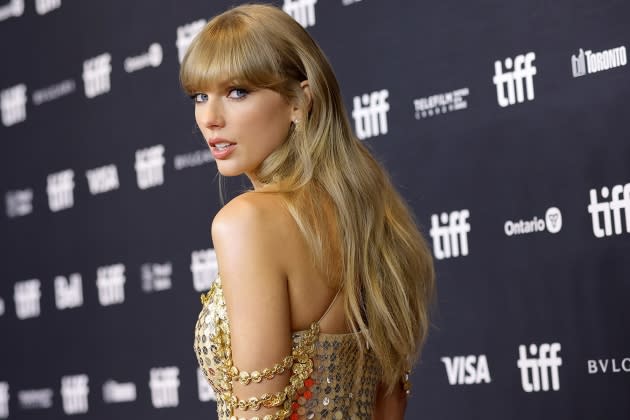Judge Denies Taylor Swift’s Last-Ditch Request to Spike ‘Shake It Off’ Copyright Lawsuit
- Oops!Something went wrong.Please try again later.
- Oops!Something went wrong.Please try again later.

Nearly nine months after Taylor Swift filed a Hail Mary motion asking a judge to reverse one of his own key rulings and cast aside a copyright infringement lawsuit centered on her biggest-ever hit “Shake It Off,” the judge issued his decision from the bench on Monday.
U.S. District Judge Michael W. Fitzgerald not only rejected Swift’s last-ditch challenge to his summary judgment decision reached last December, he also made it clear he intends to stick to the mid-January 2023 trial date now set for the long-running case.
More from Rolling Stone
Taylor Swift to Release Three 'Midnights' Bonus Tracks via Target Exclusive Edition
Taylor Swift Has Us All Thinking About the Scarf From 'All Too Well' Again
Taylor Swift Tries to Block Rival Experts at 'Shake It Off' Trial: 'Not Qualified'
“The motion for reconsideration is denied,” Judge Fitzgerald said during a hearing in downtown Los Angeles. “I don’t think it meets the standard for reconsideration, and even if it did, and I was approaching it again on the merits, I still think there’s a genuine issue of material fact in part because of the expert opinion.”
Last December, Swift’s lawyers asked Judge Fitzgerald to rethink his Dec. 9 summary judgment decision that found suing songwriters Sean Hall and Nathan Butler deserved a trial over “genuine” issues of dispute.
In their lawsuit, Hall and Butler claim Swift improperly borrowed “Shake It Off’s” chorus from their 2001 song “Playas Gon’ Play,” written for the all-female R&B trio 3LW.
In “Playas Gon’ Play,” the allegedly infringed lyrics are, “playas, they gonna play,” and “haters, they gonna hate.” Hall and Butler allege that while the phrases “may seem like common parlance today,” they were “completely original and unique” in 2001.
Swift and her songwriting and publishing partners dismiss this contention, saying the plaintiffs did not “invent” the phrases and that they’re clearly in the public domain. They alleged in their request for reconsideration that the court failed to properly filter out the public domain phrases before making its decision to let the case proceed to trial.
Allowing such a case to proceed could set a dangerous precedent, they assert, that “cheats the public domain” and lets the plaintiffs “sue everyone” who writes, sings, or publicly says “players gonna play” and “haters gonna hate’” with repetitive phrasing.
In his ruling Monday, Judge Fitzgerald said he was “remiss” in letting the defense motion for reconsideration go unaddressed for “entirely too long.” He said the basis for his decision included the expert testimony submitted in the case. Experts for plaintiffs have said there’s “substantial similarity” between the two songs’ lyrical phrasing and sequential structure.
A lawyer for Swift and her co-defendants asked if he could give oral argument before the judge issued his written ruling on the matter, but Judge Fitzgerald shot him down.
“I apologize there’s been the delay, but I have no intention of having oral argument,” Judge Fitzgerald said.
After the parties launched into arguments related to a different topic – whether Hall and Butler should be allowed to reopen discovery to determine the proper Universal entity handling “Shake It Off’s” distribution – the judge made it clear he’s not open to postponing the Jan. 17 trial date if the requested discovery would take several months to complete.
“I am not moving the trial date,” the judge told the parties without issuing an immediate ruling on that pending request.
As he left the hearing Monday, Swift’s lawyer Peter J. Anderson declined to comment.
Hall, who’s written and produced songs for Justin Bieber, Lionel Richie, Pink!, and Maroon 5, as well as Butler, who’s worked with Luther Vandross, Victoria Beckham and the Backstreet Boys, filed their underlying lawsuit in September 2017. The complaint was quickly dismissed by Judge Fitzgerald in 2018 on the basis that the disputed lyrics were “too brief, unoriginal and uncreative to warrant protection under the Copyright Act.”
Hall and Butler appealed the dismissal, and by October 2019, a three-judge panel on the Ninth Circuit Court of Appeals revived the case saying “originality” was a question of fact that should be decided by jurors, not judges.
Best of Rolling Stone
